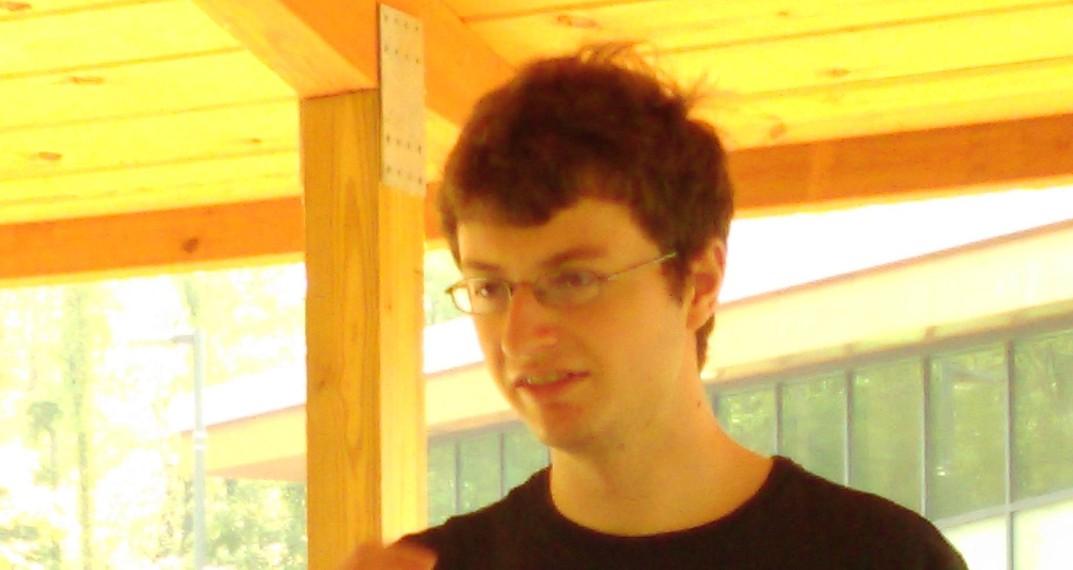July 2015 - May 2016
Effects of noise pollution on predator avoidance behavior in Anurans
I am doing research to test the distracted prey hypothesis in frogs. The hypothesis posits that animals exposed to anthropogenic noise (generated by humans) will be distracted by the noise and less likely to notice predators as quickly as they normally would, or at all (noticing through non-auditory means, if the prey animal does not notice the predator due to not being able to hear it over the anthropogenic sounds, that is acoustic masking, which is a different phenomenon). To test this, I am measuring the responses of frogs to the approach of a fake great blue heron head on a stick. The frogs in the experimental group are exposed to a recording of vehicles passing by on a highway, while those in the control group are exposed to ambient noise. Researching this topic is important to understanding a poorly understood aspect of human impact on nature. If noise pollution makes certain animals more susceptible to predation, then that will influence their population sizes near busy roadways. To my knowledge, no one has tested the distracted prey hypothesis in frogs before.
One critical aspect of research that I have learned about while working on this project, which applies to all sciences, and not just zoology, is the process of designing an experiment. While some labs do require experimental design, those are generally quicker projects with guidelines from the teacher on what sort of experiment it should be. For this I have had to work from the beginning of the experimental design process, and research on what methodologies have been used by people who have done similar experiments and what techniques are best suited for the specific question. I have learned that even for something that seems relatively simple, such as my project, it can be a complicated endeavor. My original idea was scattered and the methodology would not have been as suited for replicating how such a scenario would occur in the wild, but with research and the aid of my advisers, I have been able to work out a focused methodology.
A memorable research experience that comes to mind is one from when I was helping out with the amphibian disease study. We found this sub-adult salamander that had unfortunately already died (it was the beginning of spring, so it is possible that the cold of winter killed it). We put it in a bag of water to bring it back to campus. After a few minutes we noticed something swimming around in the water that was not there before. A small flatworm had swam out of a wound in the salamander's neck. We cannot really be sure if the flatworm was a parasite that was there when the salamander was alive, or a scavenger that came after it had died.
I grew up in the town of Dix Hills, which is in Suffolk County on Long Island. Even as a child I was always fascinated in animals and sciences, therefore biology in particular. My bookshelf was filled with science books, and most of the time in elementary school, when we would go to the library, while most of my classmates would check out story books, I would get ones on science. Though for much of my childhood, I was not really considering zoology as a career. For about seven years I actually wanted to become a toy company owner and design the toys and games. It was only really in high school, when I started thinking about where I wanted to go to school, and what I wanted to study (and at that point no longer dreamed of going into the toy business), that I decided that I wanted to go into zoology. While I do have other interests, since then, that is the only career path that I really see myself being passionate about pursuing.
My plans for the future are to become a researcher. I want to do something involving animal ecology and/ or their behavior (hence my frog study). I have not really figured out what taxon I want to focus on, given that so many of them are interesting. After graduating from Oswego I intend on going to a Master's program, and then after that, a Ph.D. program. Admittedly I have yet to decide where I want to go to do so. So for the next several months, I have a lot of work to do on that, in addition to work on this thesis, in addition to the normal school work.



